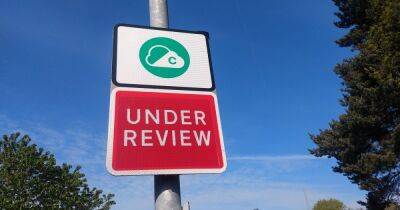Greater Manchester location named as worst Japanese knotweed hotspot in the UK - see full list
Brits across the country are currently dealing with the rise in Japanese knotweed. The weeds can damage property and can even stop other plants from growing in your garden. This is not helped by the fact that they grow fast and end up tall making the area harder to deal with. People try to deal with the weeds on their own but often it is just too difficult without professional help.
When it happens it is best to work out where the worst affected area is. This will mean you can help protect your land from the invasion getting worse, reports The Mirror.
The following data comes courtesy of Environetuk.com . It shows the worst affected areas around the UK, according to the data.
READ MORE: Cheap supermarket that rivals Aldi, ASDA, Tesco and Lidl is opening in the UK
According to data on Environet, the worst hit spots in the UK are:
Bolton, Greater Manchester - 684 infestations
Bristol - 475 infestations
St Helens, Merseyside - 441 infestations
Blackburn, Lancashire - 407 infestations
Capel Garmon, Snowdonia, Wales - 398 infestations
Llanelli, South Wales - 389 infestations
Cardiff, Wales - 361 infestations
Rotherham, Yorkshire - 306 infestations
Streatham, South West London - 300 infestations
4km radius in Nottingham - 225 infestations
Sheffield - 225 infestations
Japanese knotweed is known for being incredibly difficult to fully remove, due to how deep its roots grow. Sadly, most at-home DIY solutions won’t work, as the gardening chemicals bought in stores simply aren’t powerful to remove the blight.
However, you can still try it yourself by first cutting down the canes as close to the ground as possible. Then apply Glyphosate-based weedkiller, making sure to only spray the knotweeds to avoid damage to your other








